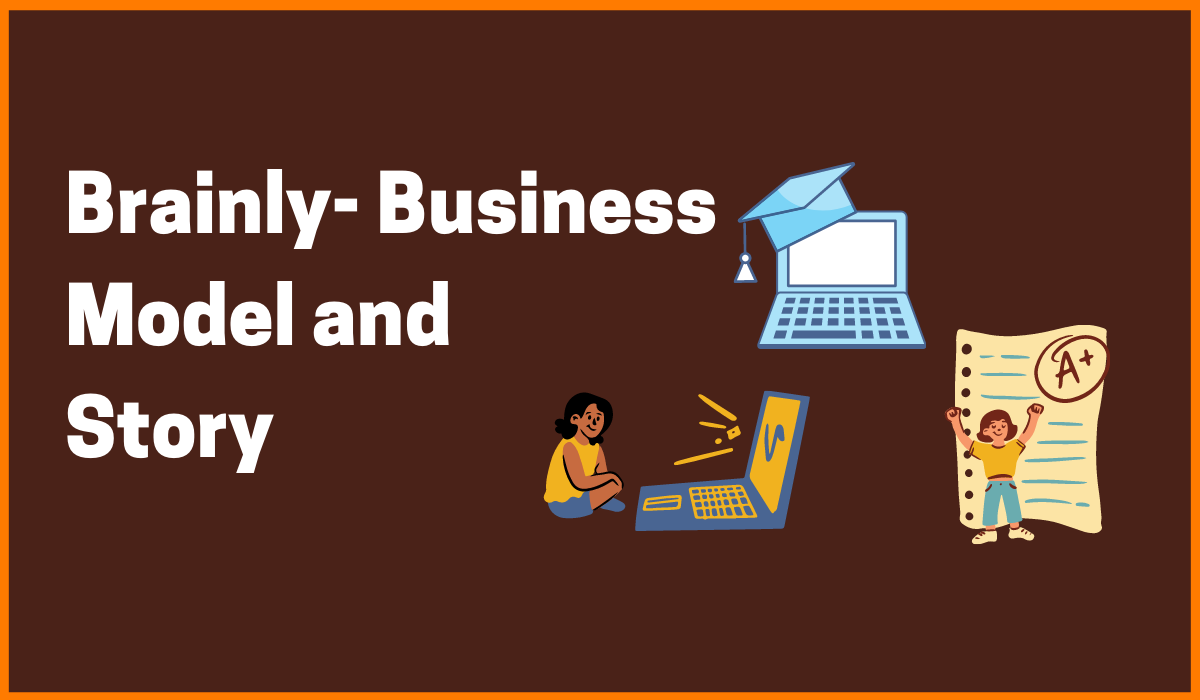One of the few industries that have grown tremendously during the Covid 19 Pandemic is the EdTech Industry. Many education institutes were shut down, while the universities/colleges had to move online due to the lockdowns and this is what gave rise to the already existing EdTech startups. The Global EdTech industry is estimated to reach over $7 trillion by 2025.
While the Grand View Research also put out a statistic that the global education technology market size is estimated to rise to an all-time high of $285.2 billion by 2027. The EdTech companies are now looked up as the global phenomenon as they are shaping the new generations. One of the countries that are seeing the fastest growth in investment into the EdTech industry is China, as it currently has the largest EdTech market.
China has more than 1,058 EdTech startups that cater to 400 million students in the country. The country’s Edtech industry reached RMB 453.8 billion in 2020, according to iiMedia’s Research. The statistical report on Internet Development in China that China has over 423 million online educational users in 2020 alone. The Edtech industry in China focuses on robotics, tutoring and creating innovative educational technologies that will help in integrating technology into the classrooms of the country’s educational institutes.
China’s Edtech startups have the potential to increase digital education in the country but the Chinese Government has recently imposed new laws making the Edtech companies go nonprofit. Besides going nonprofit the companies are also banned from going public or raising foreign capital, this could not only hinder the growth of the industry but also destroy its $100-billion Edtech market.
Yuanfudao
VIPKid
Zuoyebang
Hujiang
Huohua Siwei
Changing Edu
CodeMao
DaDaABC
17zuoye
Frequently Asked Questions

Here’s a list of EdTech startups in China
Yuanfudao
| Company | Yuanfudao |
|---|---|
| Founded year | 2012 |
| Headquarters | Chaoyang (China) |
| Funding | $4.1 billion |
| Investors | YF Capital, Temasek Holdings, DCP Capital, Danhe Capital, Ocean Link, DST Global, CPE, GIC, Trustbridge Partners, Greenwoods Investment |

Yuanfudao started by Shuai Ke, Xin Li and Yong Li in 2012 is one of the top EdTech startups in China. The company also founded Yuantika in 2015, a platform that provides online question banks and other school-based test preparation. The platform is known for its live tutoring, virtual classes and providing apps that are helpful for completing homework, all of which are AI-enabled. Besides that Yuanfudao also connects students with their teachers and through their app’s live stream.
It provides exercises to improve testing efficiency designed specifically for China’s exams such as the National college entrance exam, post-grad exams, Civil service exams, schools & university level exams among many others.
It currently has more than 30,000 employees and over 4 million student users. The students also have an option of choosing whether they want one on one tutoring or join a class with a group of students. The company is estimated to be around $15.5 billion making it one of the most valuable Ed-tech startups in China.
VIPKid
| Company | VIPKid |
|---|---|
| Founded year | 2012 |
| Headquarters | Beijing (China) |
| Funding | $1.1 Billion |
| Investors | Tencent, Sequoia Capital China, YF Capital, Learn Capital, Matrix Partners, Coatue, Sinnovation Ventures, Northern Light Venture Capital |

VIPKid was founded in 2018 is one of the leading English tutoring education apps in China. The platform provides more than 1.5 million free English tutoring classes for children from age 4 to 15 years old. VIPKid currently has over 700,000 paying users and more than 80,000 North American teachers. The platform allows the parents of the students to book for sessions and later upload their classes online.
The English classes are often based on the American state’s standard, while the teachers can review their students work and give their feedback. The company aims to create a global classroom that empowers students and teachers and connect different cultures around the world. During the beginning of the Covid 19 Pandemic, the company was dedicated to providing free classes to the children of Wuhan.

Zuoyebang
| Company | Zuoyebang |
|---|---|
| Founded year | 2014 |
| Headquarters | Beijing (China) |
| Funding | $2.9 billion |
| Investors | FountainVest Partners, Sequoia Capital China, Tiger Global Management, Softbank Vision Fund, Alibaba Group, Xianghe Capital |

Zuoyebang is another popular EdTech startup in China that was founded by Hou Jianbin in 2014. The platform offers assistance and support for the student’s homework. It also allows its users to upload their questions and doubts and receive an answer later, as it is driven by AI software. Zuoyebang is made especially for the students of primary, junior, middle and high school only.
The platform has paid and free online courses and live classes on various subjects, for students up until class 12. It currently has more than 50 million daily student users and over 170 million active users in a month. The parent company of Zuoyebang is Baidu and it has so far raised over $2.9 billion.
Hujiang
| Company | Hujiang |
|---|---|
| Founded year | 2001 |
| Headquarters | Shanghai (China) |
| Funding | $187 million |
| Investors | SIG China, Baidu, Kaishi Capital, China Minsheng Investment, Anhui Xinhua Media, etc |

Hujiang is a well-known Chinese EdTech platform for learning different languages. This Shanghai headquartered company was initially founded by Cairui Fu in 2001. Besides providing language-learning solutions, it also offers corporate training solutions for Chinese companies. The languages that Hujiang provides classes in are English, German, French, Spanish, among others.
Hujiang app and website also have many languages learning online tools such as translators and dictionaries for all the languages it teaches. Its platform is divided into four different services which include a news platform, an online community, online tools and live or online courses and works on the enrollment revenue model. Hujiang provides its services offline schools and colleges across the country in order to fill the gaps in the education sector.

Huohua Siwei
| Company | Huohua Siwei |
|---|---|
| Founded year | 2016 |
| Headquarters | Beijing (China) |
| Funding | $593 million |
| Investors | Tencent, Hike Capital, Trustbridge Partners, Yuanfudao, GSR Ventures, GGV Capital, Seqouoia Capital China, Kohlberg Kravis Roberts |

Huohua is another leading EdTech startup in China that is an AI-based online learning platform that focuses on students below class 12. The company was founded by Jian Luo in 2016 and has its headquarters based in Beijing, China. The platform offers online classes, live sessions, AI based interactive games, and is available on both android and iOS platforms.
Huohua focuses on subjects like Maths and Science, while its games are designed in a way that develops student’s fundamental ability of thinking and concentrating. So far the platform has over 250,000 active student users and more than 85,000 daily active users. Its mathematic classes have become popular because they are divided into three modules which are spatial thinking, computing power and logical reasoning.
Changingedu
| Company | Changingedu |
|---|---|
| Founded year | 2014 |
| Headquarters | Shanghai (China) |
| Funding | $188 million |
| Investors | Sequoia Capital China, IDG Capital, FREES FUND, Trustbridge Partners, TAL Education Group, ClearVue Partners |

Changingedu is an upcoming online to offline Edtech startup that was founded by Liu Changke in 2014. The company has its headquarters in Shanghai and is known for making educational apps that connect students, parents and teachers. Changingedu focuses on creating after school learning services, while the parents are also allowed to send their doubts and enquiries about the app’s services.
The platform offers virtual services, educational services, live streaming and get your questions answered. Changingedu offers one on one teaching courses for primary & secondary school students and is available in over 11 cities across China. Changingedu has a six-week learning contract with students for a one on one teaching experience, if the students don’t like it they can ask for a refund. The platform claims to have provided 10 million hours of teaching services.

CodeMao
| Company | CodeMao |
|---|---|
| Founded year | 2015 |
| Headquarters | Shenzhen (China) |
| Funding | $360.4 million |
| Investors | CITIC Securities, Goldstone Investment, Youshan Capital, Sino-Ocean Capital, Wens Investment, Hillhouse Capital Group, Baring Private Equity Asia, Greater Bay Area Homeland Development Fund |

CodeMao is another leading Chinese Edtech company that focuses on online programming learning tools for children up to class 12. Besides provides programming courses, the platform also helps in IT learning and training tools. The company was founded by Tianchi Li and Yue Sun in 2015 with its headquarters based in Shenzhen. The students can collaborate on different projects with other students.
CodeMao aims in helping students learn programming and computer coding through an interface that is game-oriented. The courses are designed in a way that children can learn coding tools, programming concepts and exercise their logical thinking abilities. Through this platform, the students can use coding tools and coding languages to build games, software’s, animations that will be reviewed by their teachers.
DaDaABC
| Company | DaDaABC |
|---|---|
| Founded year | 2013 |
| Headquarters | Shanghai (China) |
| Funding | $863 million |
| Investors | Loyal VC, Yonghua Capital, TAL Education Group, Qingsong Fund, Warburg Pincus, Oriental Fortune Capital, Tiger Global Management |

DaDaABC is another English learning EdTech platform that competes with VIpKid. The company was started by Grace Zhi and Dennis Lee in 2013 with headquarters based in Shanghai, China.
This platform provides students of the school with one on one English courses live and has so far won over 15 awards for its excellence in the field. DaDaABC is said to operate on flipped classroom model that uses blended learning strategies to teach their students.
Unlike VIPKid the platform hires native speaking teachers especially for student of 5 to 16 years old. The platform also teaches French and Spanish from 2017 and also has an option where children below six years can learn English. So far the DaDaABC has over 10,000 teachers and more than 100,000 active students weekly.
17zuoye
| Company | 17zuoye |
|---|---|
| Founded year | 2011 |
| Headquarters | Shanghai (China) |
| Funding | $585 million |
| Investors | Dong Ni Education |

17zuoye is known to be one of the largest online EdTech Companies in China, with headquarters in Shanghai, China. The company was founded by Dun Xiao and Liu Chang in 2011, while the platform focuses on providing homework solutions and live English & math’s classes. As of 2018, the platform had over 60 million users and 120,000 schools and plans to expand to more middle and high schools across the country.
17zuoye offers services such as learning tools, learning contests, study reports submitted to the parents, among others. The company also has many global partners with countries like the USA, UK, Japan, South Korea, where it promotes its content. The platform aims to provide international level education and give students equal access to education.

Frequently Asked Questions
What are the top EdTech startups in China?
The top EdTech startups in China are 17zuoye, DaDaABC, CodeMao, Changingedu, Huohua Siwei, Hujiang, Zuoyebang, VIPKid, and Yuanfudao.
How much is the Global EdTech industry worth?
The EdTech industry is estimated to reach over $7 trillion by 2025.
How much is the EdTech industry in China worth?
The country’s EdTech industry reached RMB 453.8 billion in 2020, according to iiMedia’s Research.




















